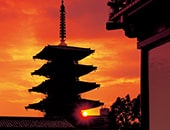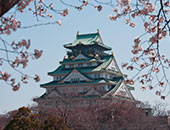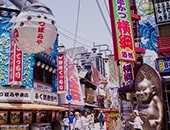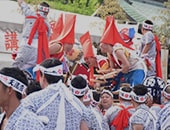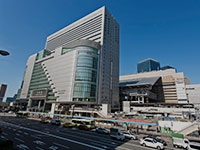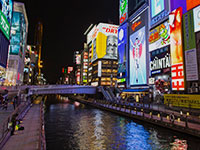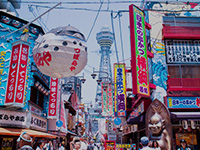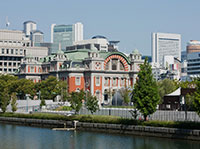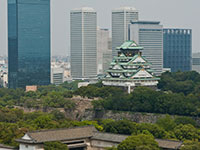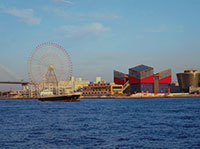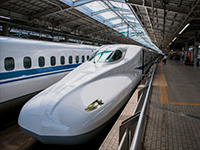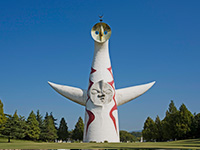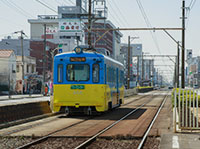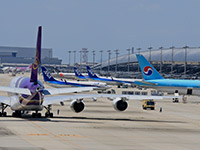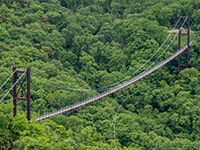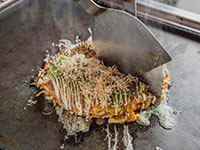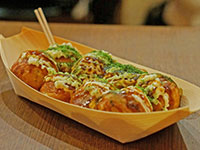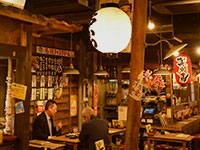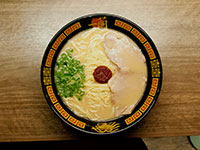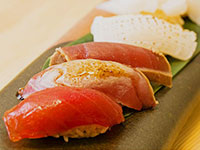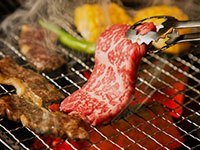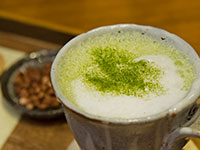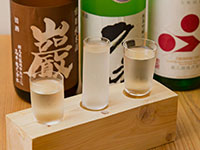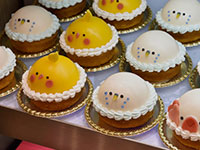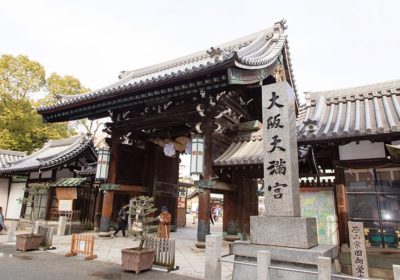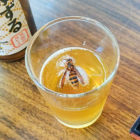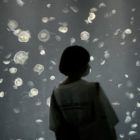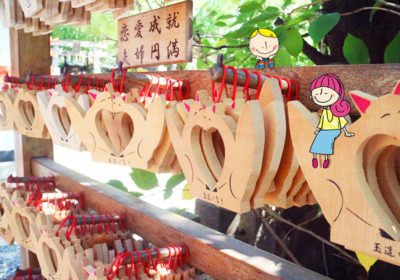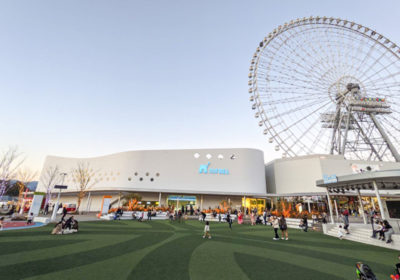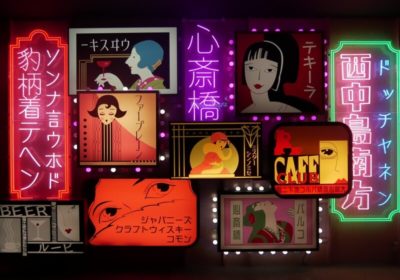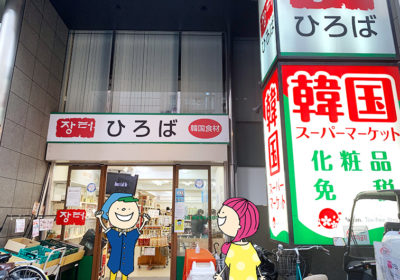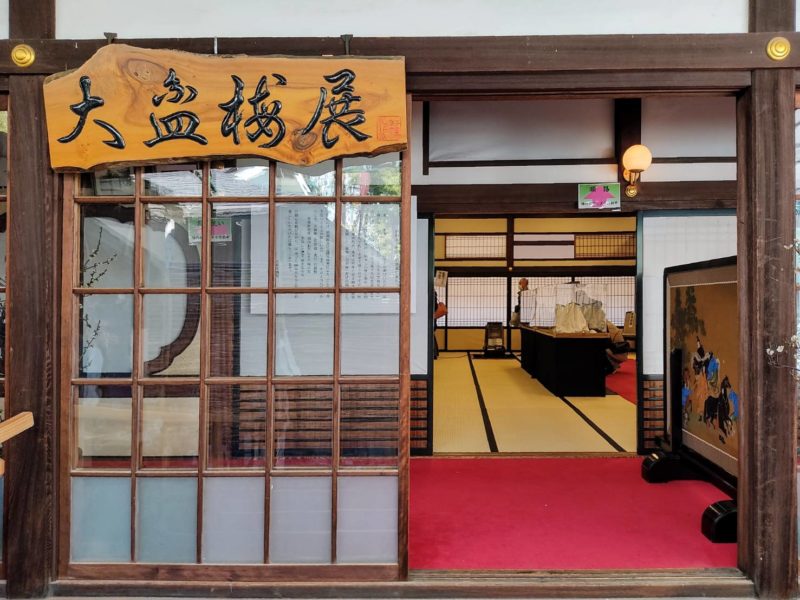

Supporter
Plum Bonsai & Samurai Swords at Osaka Tenmangu
Spring is absolutely stunning at Osaka Tenmangū Shrine! Take a stroll through the shrine grounds to see and smell the countless varieties of plum blossoms blooming in all shades of pink, white, and crimson.
And if your timing is right, visit the special plum bonsai and sword exhibition. But it’s only open for about two weeks. Just like the flowers!
[Contents]
■Osaka Tenmangū Shrine & its Guardian Deity
First a little background on the shrine…
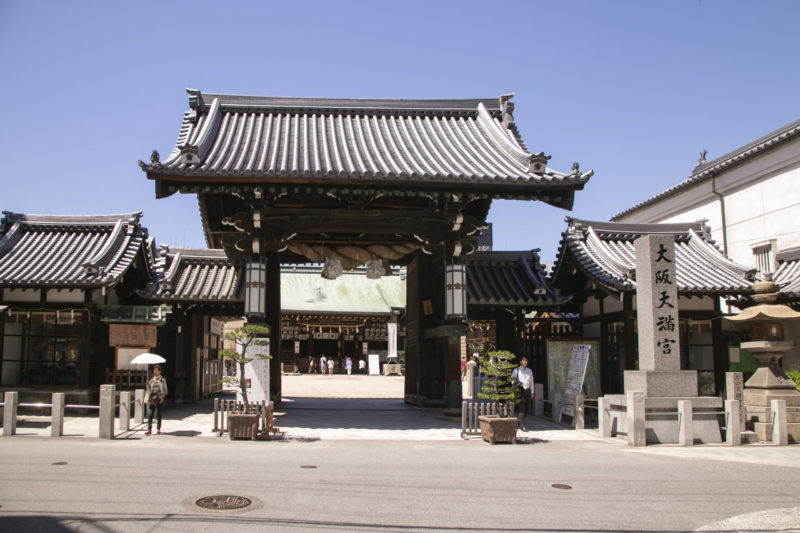
Osaka Tenmangū Shrine is a large centrally-located shrine in the heart of Osaka, just steps away from Tenjinbashisuji Shopping Arcade. This Shinto shrine is devoted to Sugawara no Michizane (846–903), a political figure renowned for his knowledge of Chinese literature and poetry. After falling out of favor with the emperor, he was banished to the island of Kyūshū where he spent his final days.
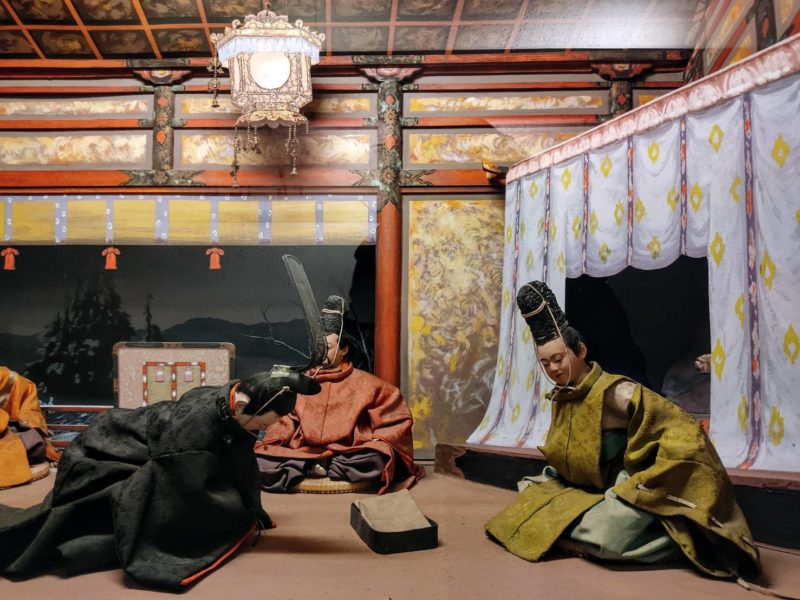
▲Michizane (in black) once had a close relationship with the emperor
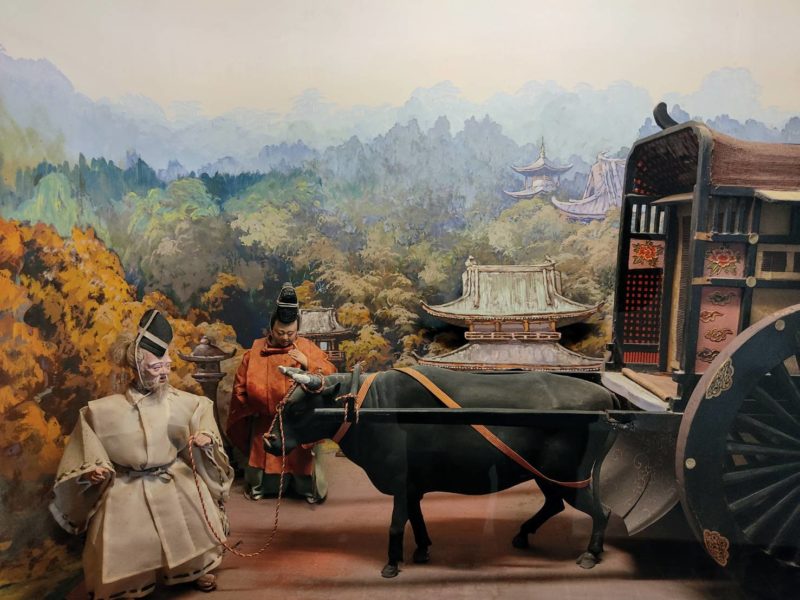
▲When Michizane died, his body was towed by an ox, which collapsed and refused to move any further. His body was buried at this spot, which is present-day Daizaifu Tenmangū Shrine.
After Michizane’s death a series of misfortunes befell the imperial capital of Kyōto, which were thought to be the doings of Michizane. To appease his angry spirit a shrine was built in his honor to lift the curse and he became posthumously known as Tenjin, the deity of scholarship and learning. Students from all over Kansai visit Osaka Tenmangū to pray for good luck in their academics, especially during exam season.
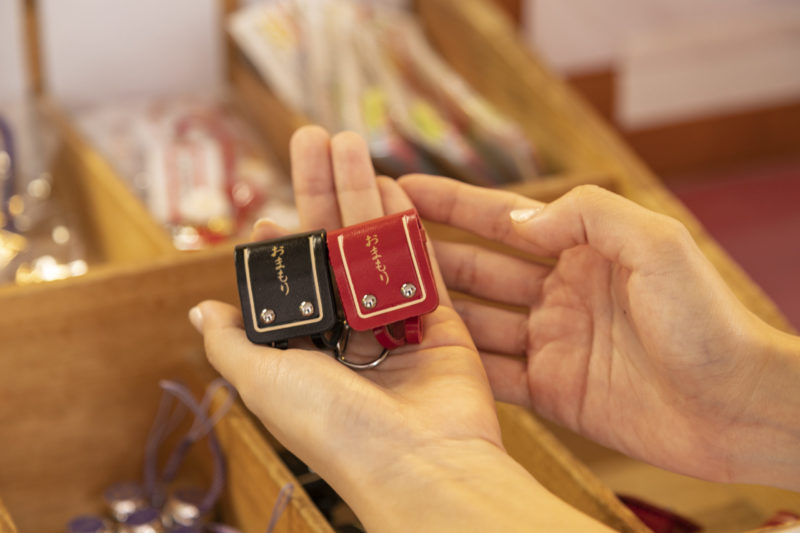
▲School-bag shaped amulets sold at Osaka Tenmangū
Throughout his life Michizane composed many poems, including this one which was written to his beloved plum tree, just before he left Kyōto:
When the east wind blows,
flourish in full bloom,
you plum blossoms!
Even though you lose your master
don’t be oblivious to spring.
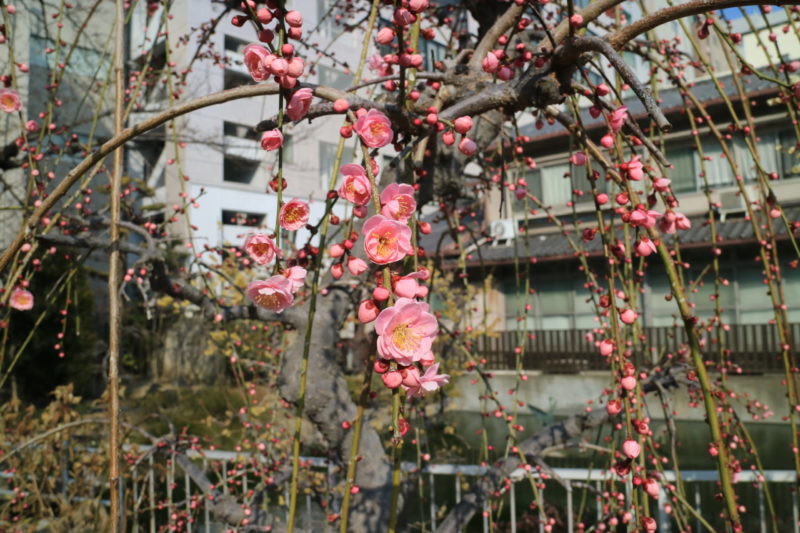
▲Plum Blossoms at Osaka Tenmangū in Spring
The Tenjin Shrine in Osaka is one of Japan’s largest Tenjin shrines and was built on the grounds of Daishōgun Shrine, where, according to legend, 7 pine trees appeared overnight almost 50 years after Michinzane’s death. Daishōgun Shrine is one of the smaller shrines at Tenmangū and is eclipsed by the much larger buildings of the main shrine. As Michizane loved plums, you’ll find a variety of spring-blooming plum trees at Osaka Tenmangū and other Tenjin shrines across the country.
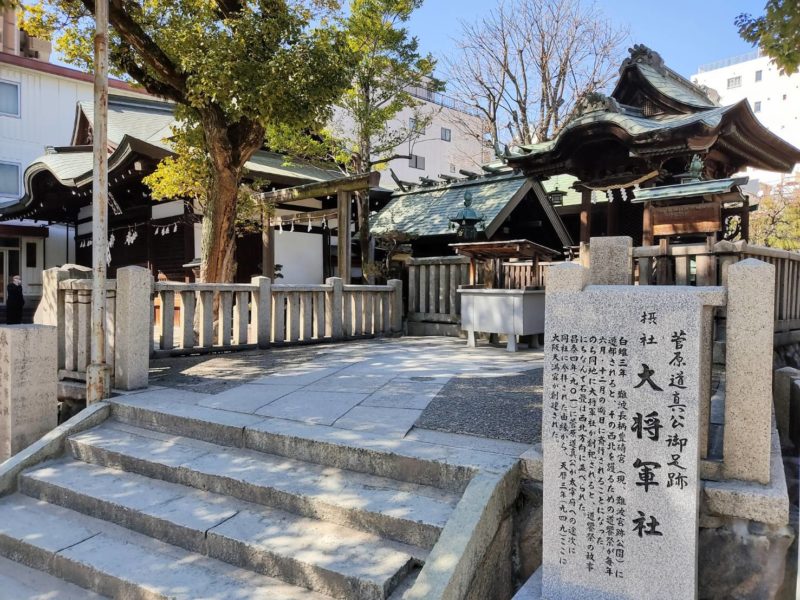
▲Daishōgun Shrine, located on Osaka Tenmangū Shrine grounds
Annual Tenma Tenjin Ume Matsuri (Plum Flower Festival)
Every year between February and March Osaka Tenmangū Shrine grounds are bursting with tiny pink and white blossoms and the aromatic fragrance of these sweet signs of spring. Visitors revel in the beauty of the various plum trees in and around the shrine in bloom, the bonsai plum and sword exhibit, and the special limited-time goshuin (shrine stamps and lettering) that are available only during the plum festival.
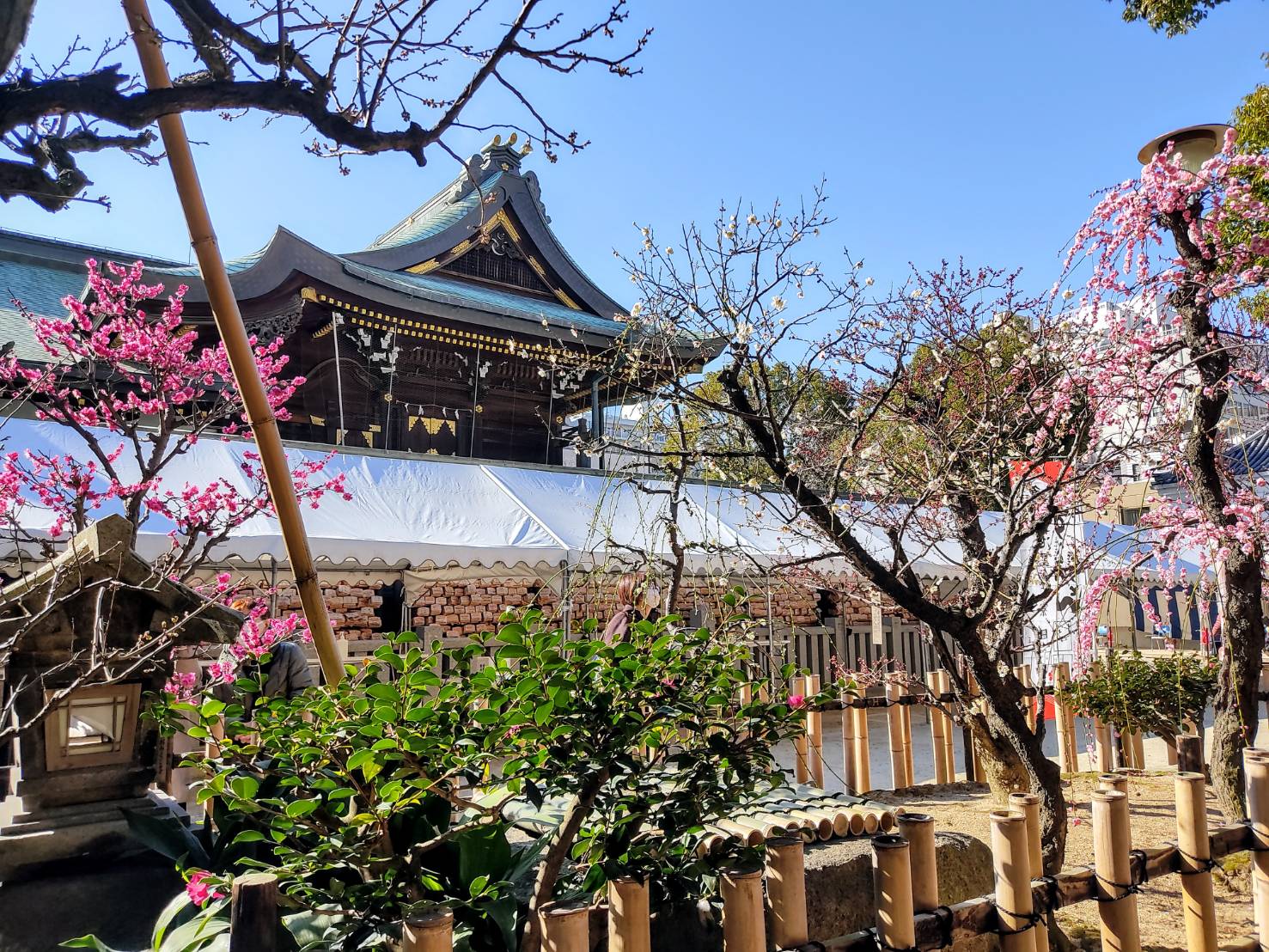
▲Ume garden on shrine grounds (free admission)

▲Ume-blossom shaped ema (wooden prayer tablets) with prayers for academic success
Bonsai Plum Exhibit
The shrine is fun to visit in spring and the plum blossoms in the shrine garden are beautiful, but if you have an extra hour in your day, definitely visit the bonsai exhibit. It is worth the price of admission!

Magnificently stunning, the exhibit features countless plum trees that have been carefully cultivated over many generations. The oldest bonsai on display is estimated to be almost 300 years old. These not-so-tiny trees are displayed in the shoin-zukuri style shrine buildings with their long corridors and sliding panels providing an elegant backdrop for the bonsai.
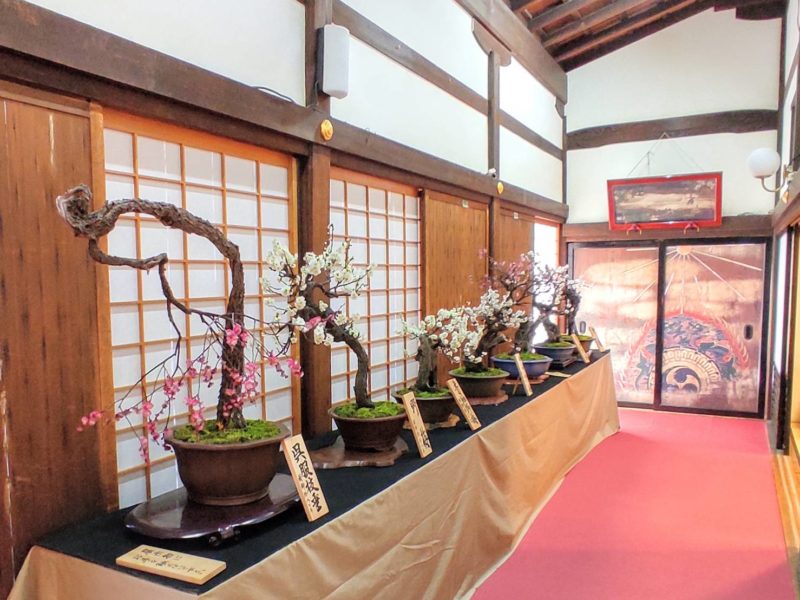
The exhibit was absolutely breathtaking and so fragrant it attracted a number of buzzy visitors besides myself. It might be best to let the pictures speak for themselves.

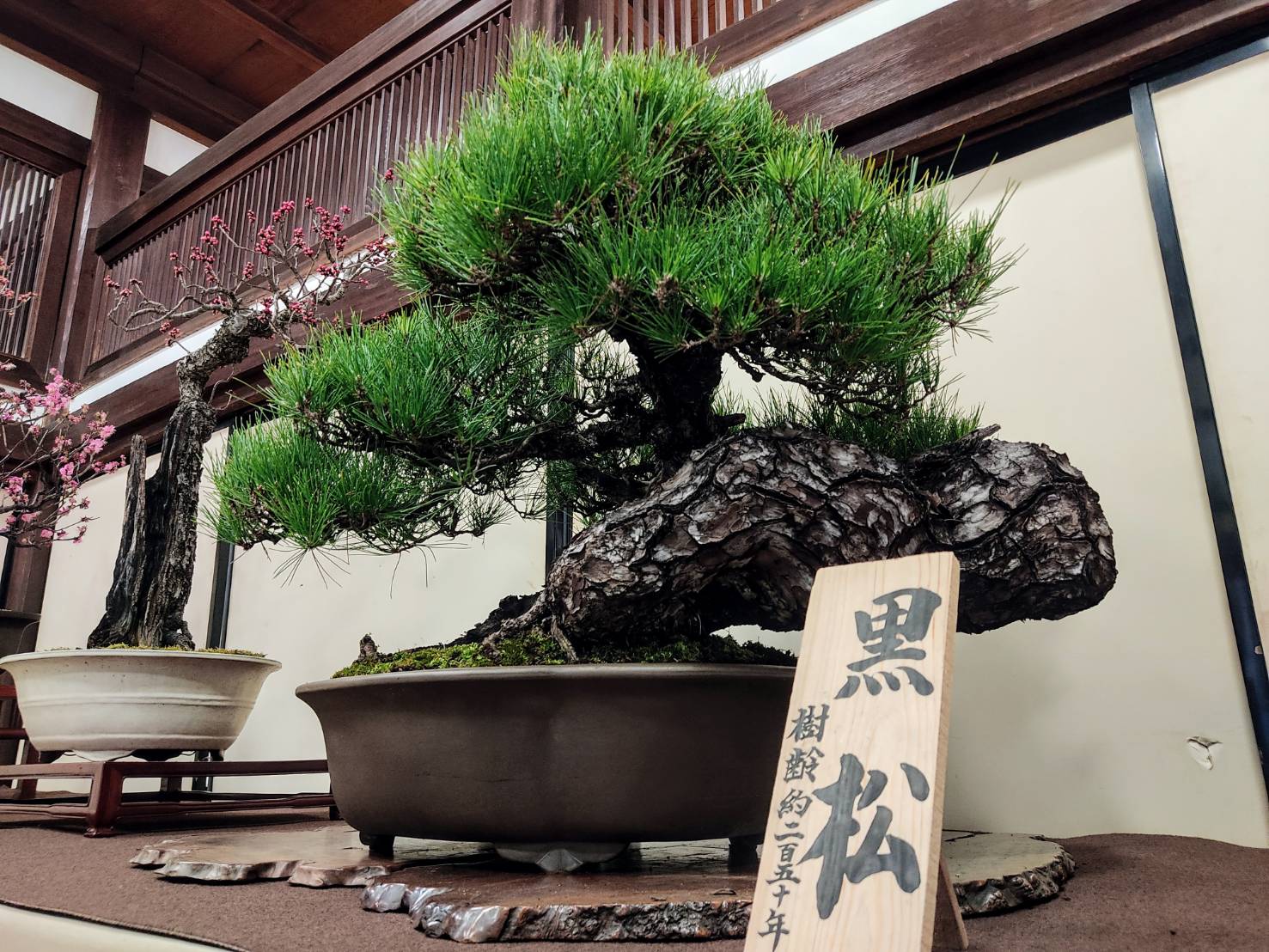
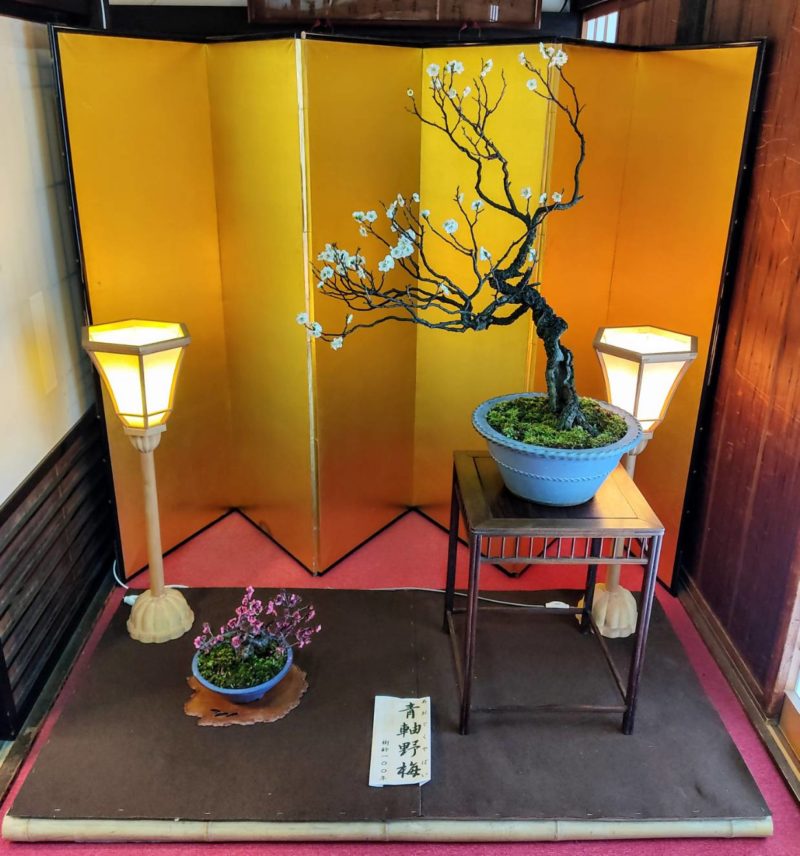
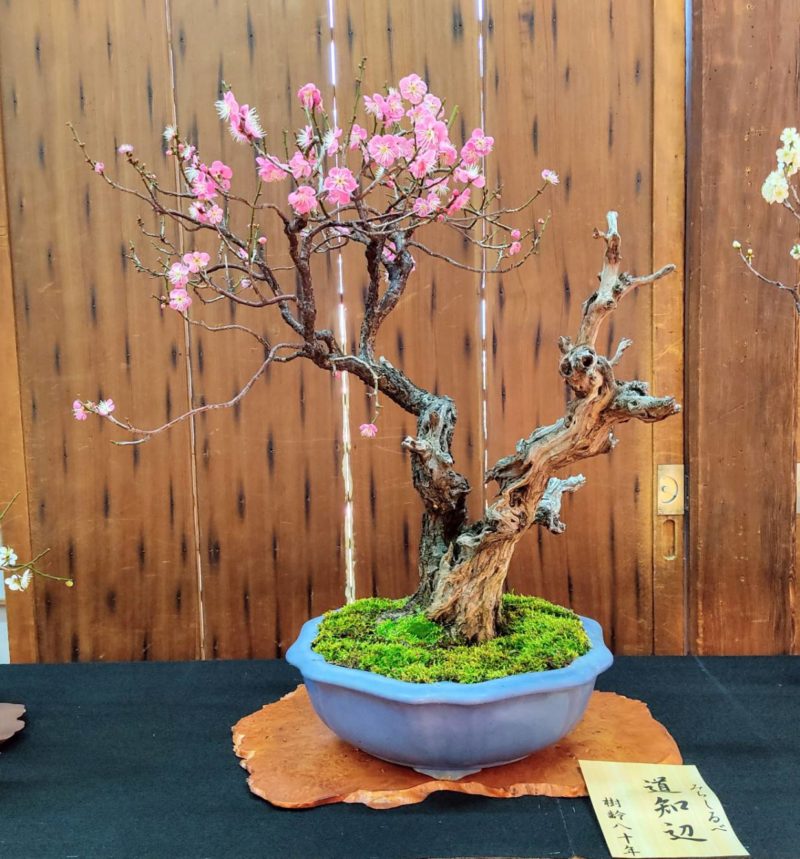
Even if you have very little knowledge of bonsai, the shapes and tree varieties, you can still enjoy the displays. It’s truly amazing to see how they have been molded into certain unusual shapes, and their lasting beauty despite the tree cores having eroded over the centuries.
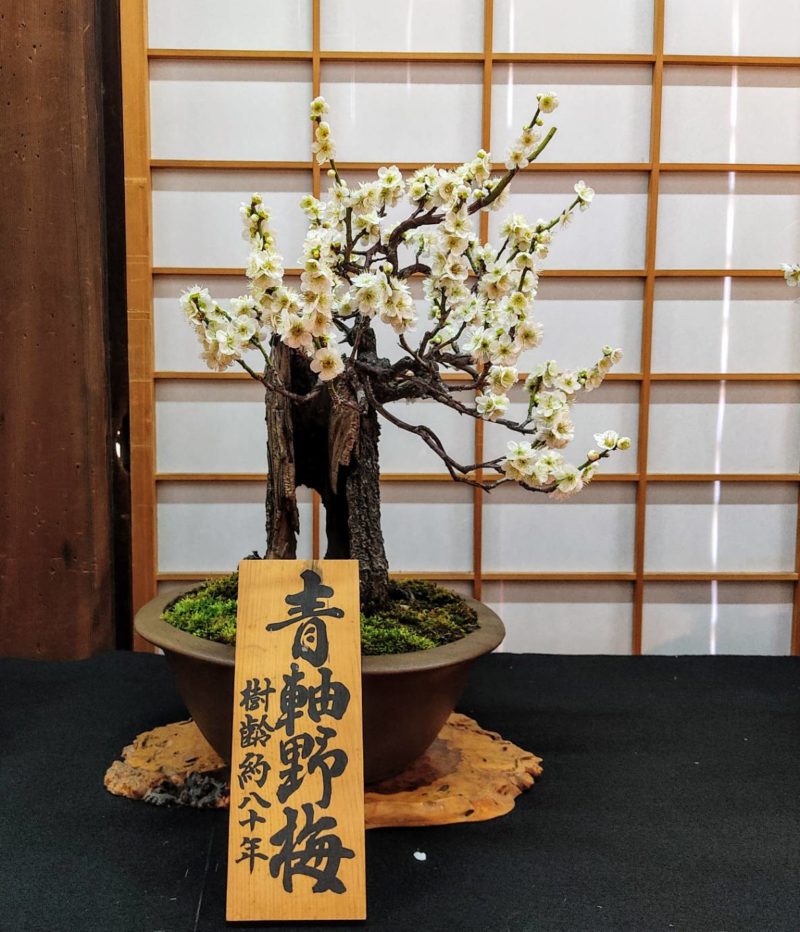
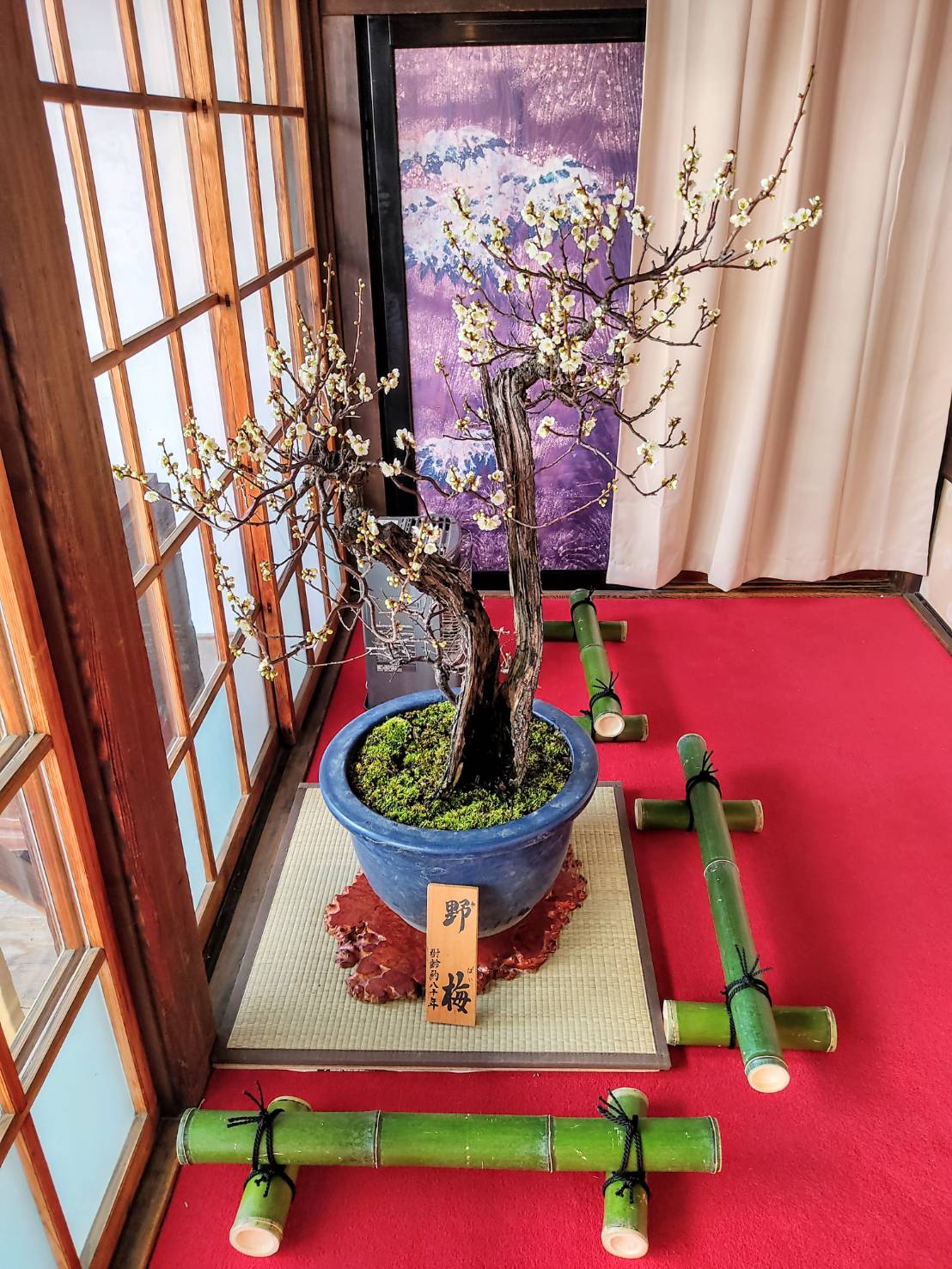
Samurai Sword Displays
The swords are something else! Each displayed in a glass case, history buffs will appreciate the many blades on display and the details about who owned them. (Although, beware, most of the signage is in Japanese only.)
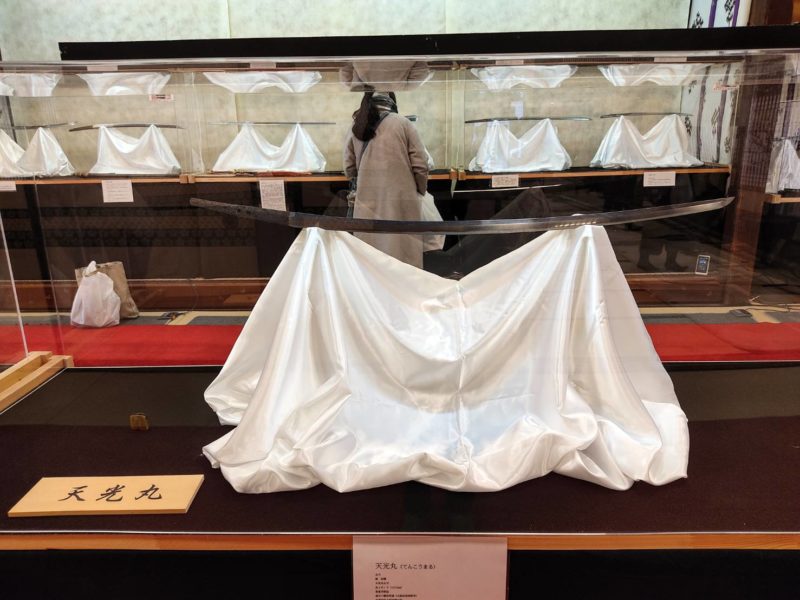
▲ The centerpiece of the exhibit—Tenkōmaru, a sword said to have been loved by the great warrior Minamoto no Yorimitsu, aka Minamoto no Raikō (948–1021).
The proper way to display a sword in peace-times is with the handle on the left, because there should be no need to pick it up quickly to arm oneself. A samurai would have carried 3 swords at a time, the tachi (long sword), wakizashi (mid-sized sword), and tantō (small blade). Examples of these different blades can be seen here with accompanying accessories, and some unusually shaped blades.
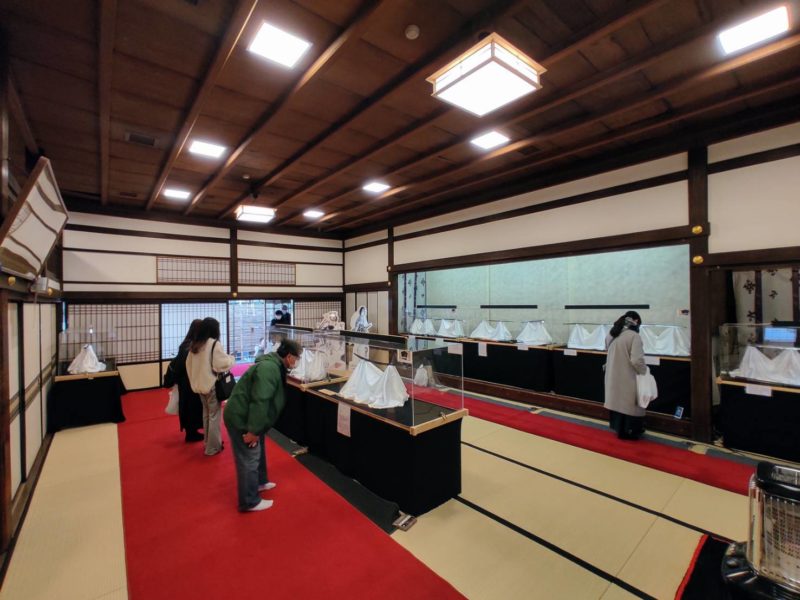
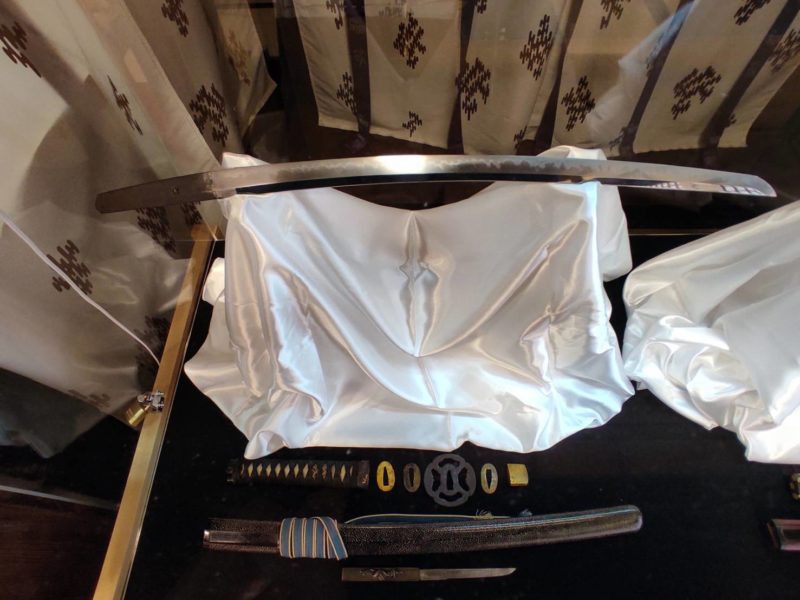
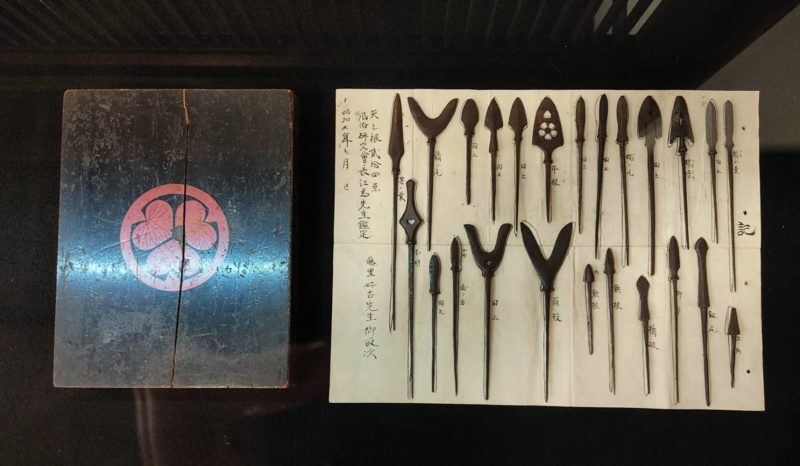
▲Various styles of samurai arrowhead, including watakushi(rope-cutter) and karimata(flesh-ripper).
Event Details
Date: Feb. 11–Mar. 2, 2025 (exact dates vary by year)
Time: 9:30–16:30 (last admission at 16:00)
Place: Assembly Hall at Osaka Tenmangu Shrine
Admission: Adults ¥700, Children (middle school age & below) ¥400, Groups of 10 or more ¥600
Tickets can be purchased onsite.
Official information can be found on the Osaka Tenmangu website (in Japanese).
Sights to See Nearby
Tenjinbashisuji Shopping Arcade is the longest shopping arcade in all of Japan. Spanning 2.6 kilometers, this street has hundreds of stores, restaurants, and more! It is a fabulous place to explore, dine, and shop. Overhead decorations also change throughout the length of the street and fondly recall the local culture with images of torii gates, ladybugs, and wildly styled deities.
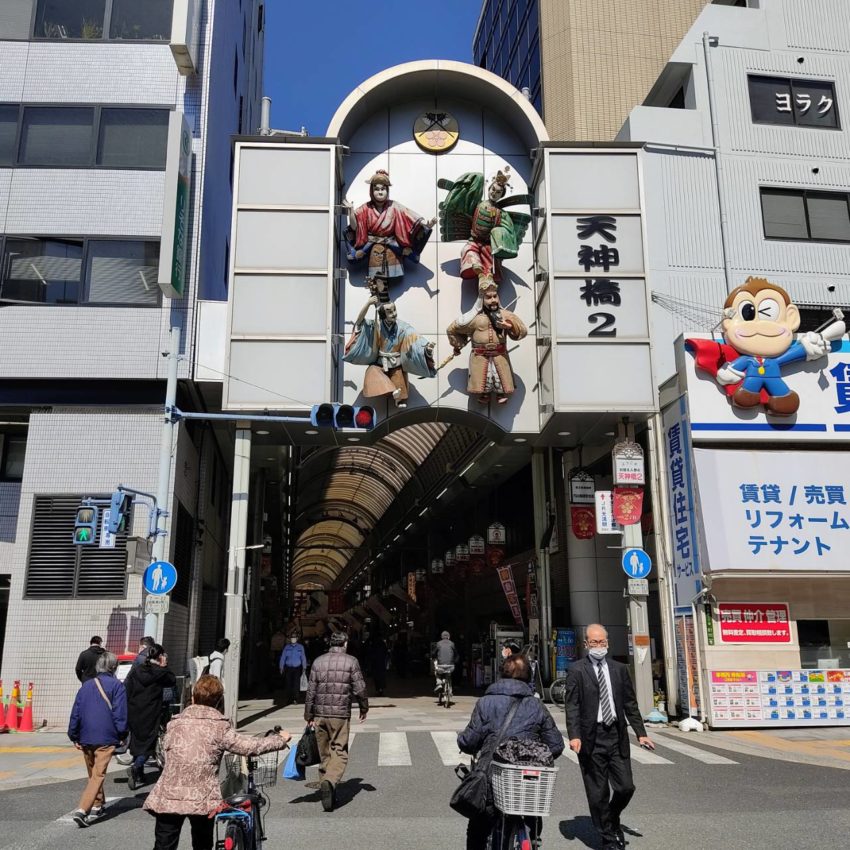
Just steps from the northern entrance to the shrine is an traditional performance hall, Tenma Tenjin Hanjotei known for its entertaining rakugo (traditional storytelling) performances. The building facade is also a lovely place to snap a photo.
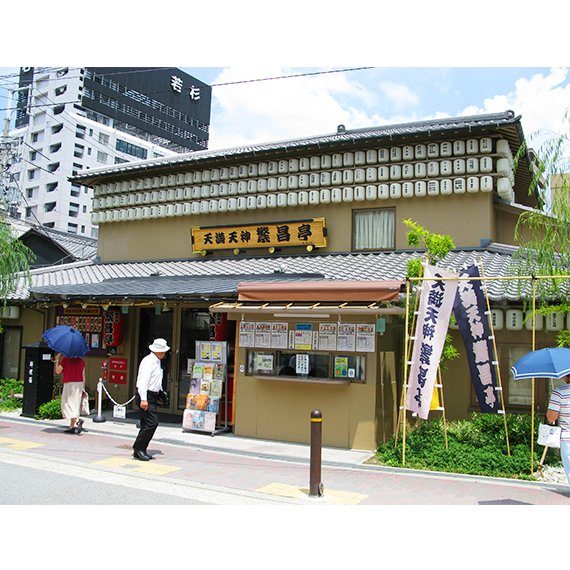
This area is also a haven for amazing food, like Words Cafe, which pays homage to Hanjotei and the deep relationship with locution. So be sure to stop by one of the neighboring restaurants or cafes when you visit.
▼If you liked this article, read more
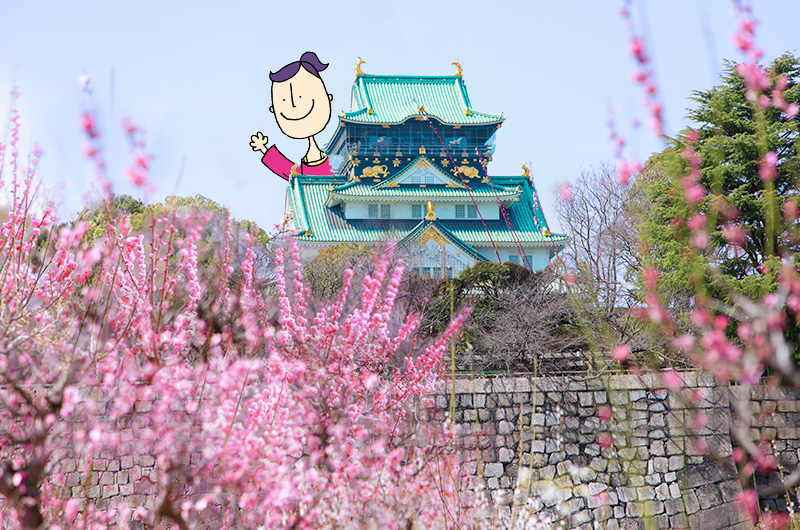 The first signs of spring! Plum blossoms at Osaka Castle
The first signs of spring! Plum blossoms at Osaka Castle
Supporter
The contents of this page were current at the time it was posted, but may differ from the present.
Text visible in this map is based on information from Map Tiler and may differ from actual geographical names.

